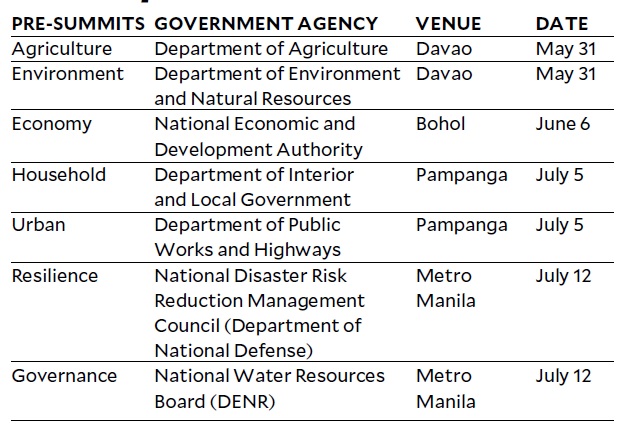Floods, droughts and political will
The rainy season has started. When floods come, water is everywhere. This is the opposite of droughts, when water is nowhere. In both disaster situations, political will must be exercised.
Three water pre-summits in Davao and Bohol in the past two months have provided significant proposals. But without political will, these suggestions are bound to suffer the same fate described in the Mona Lisa song: “Many dreams have been left on your doorstep. They just lie there, and they die there.”
To ensure these pre-summits do not result in NATO (no action, talk only) events, each is coordinated with a key government agency.
A key proposal unanimously advocated during all three pre-summits is the need for an apex body that will manage our largely uncoordinated 30 water-related government agencies.
The administration should certify as priority a bill creating this body, whether it is a Department of Water (such as what exists in many countries) or a similarly strong agency. Another body should concentrate on water regulation, following the principle that an organization should not do both development and regulation at the same time.
But since addressing the water crisis is urgent, it is proposed that the National Water Resources Board (that unfortunately does both development and regulation) be given the resources to do its job well.
In all three pre-summits, participants decried images of an “imperial Manila.” Those in remote areas have to go all the way to Manila just to get water permits and seek solutions.
An obvious proposal that has been lying on the government’s doorstep is for NWRB to have at least one office in Mindanao and one in the Visayas. But it just died there.
Why do we have floods? Because the government does not have the political will to stop the destruction of a total of 5.7-million hectares (ha) of forests and lands. Only 130,000 ha of mangroves remain, when they could have played an important role in controlling the effects of storm surges.
Another proposal is to have a massive reforestation program for planting indigenous species (such as bamboo, which can survive cogon), instead of other trees that die easily. There is also a need for livelihood activities for the displaced kaingineros (slash-and-burn farmers), otherwise they will return to their former practices.
Political will is also necessary for an effective free irrigation program. It should be free, but only up to the point where farmers really need the water supply. Beyond this, they should be charged depending on the excess volume they use.
Invitation. Working with a limited budget, the organizers have already carefully chosen 60 key knowledgeable participants for future pre-summits. Additional stakeholders interested in contributing to the pre-summit should identify which sector they wish to join and their background by e-mailing [email protected] before July 8. They will get an e-mail response on July 10 on whether they can be accommodated.















